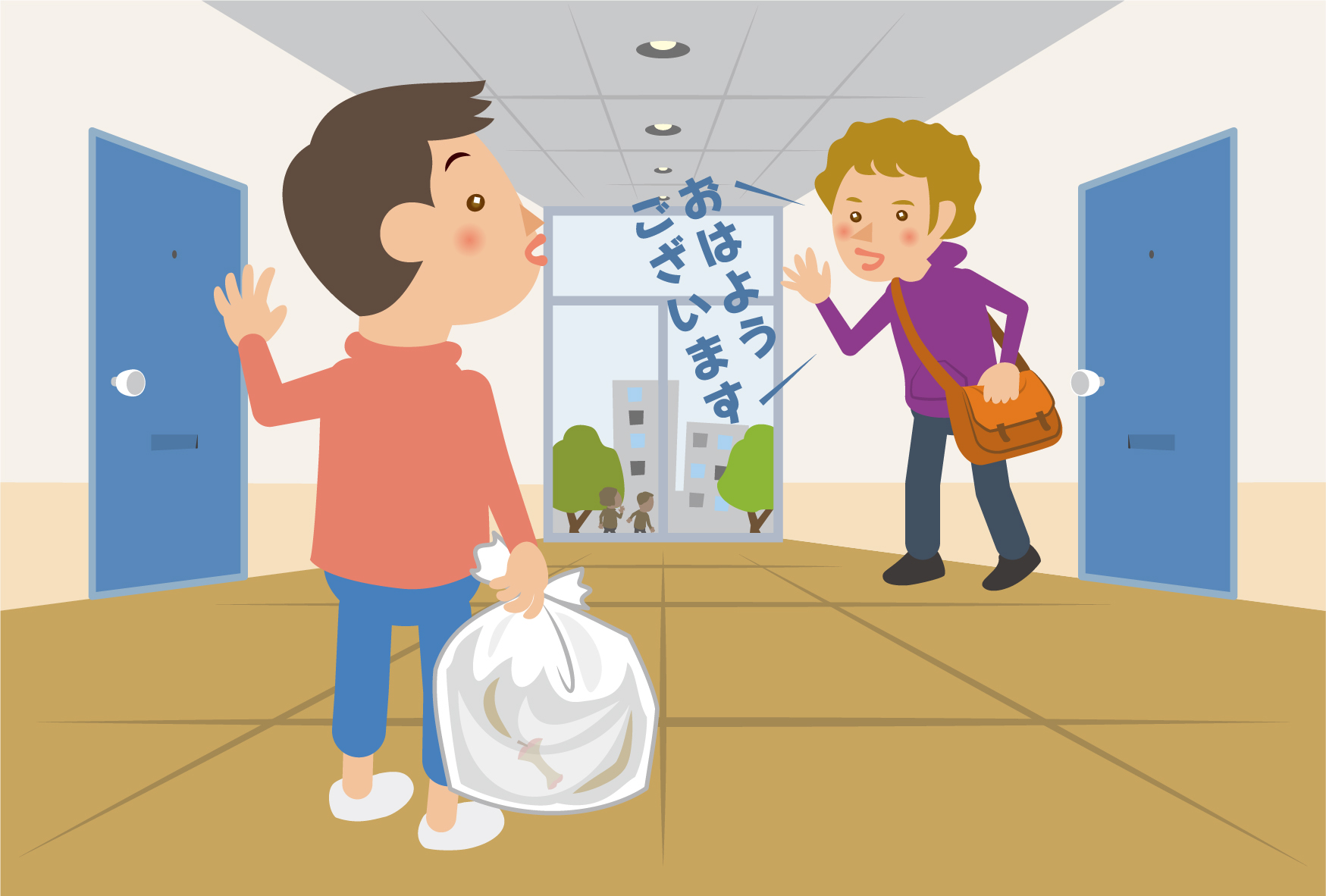Natural Disasters
In the Event of an Earthquake
In the Event of an Earthquake
When an earthquake strikes, it is important not to panic.
The information on this page will tell you how to act in the event of an earthquake.
If you are at home
Trying to go outside while the ground is still shaking can be very dangerous, as you may fall, or be struck by falling objects.
Until the shaking stops, take shelter under a desk or table and protect your head.
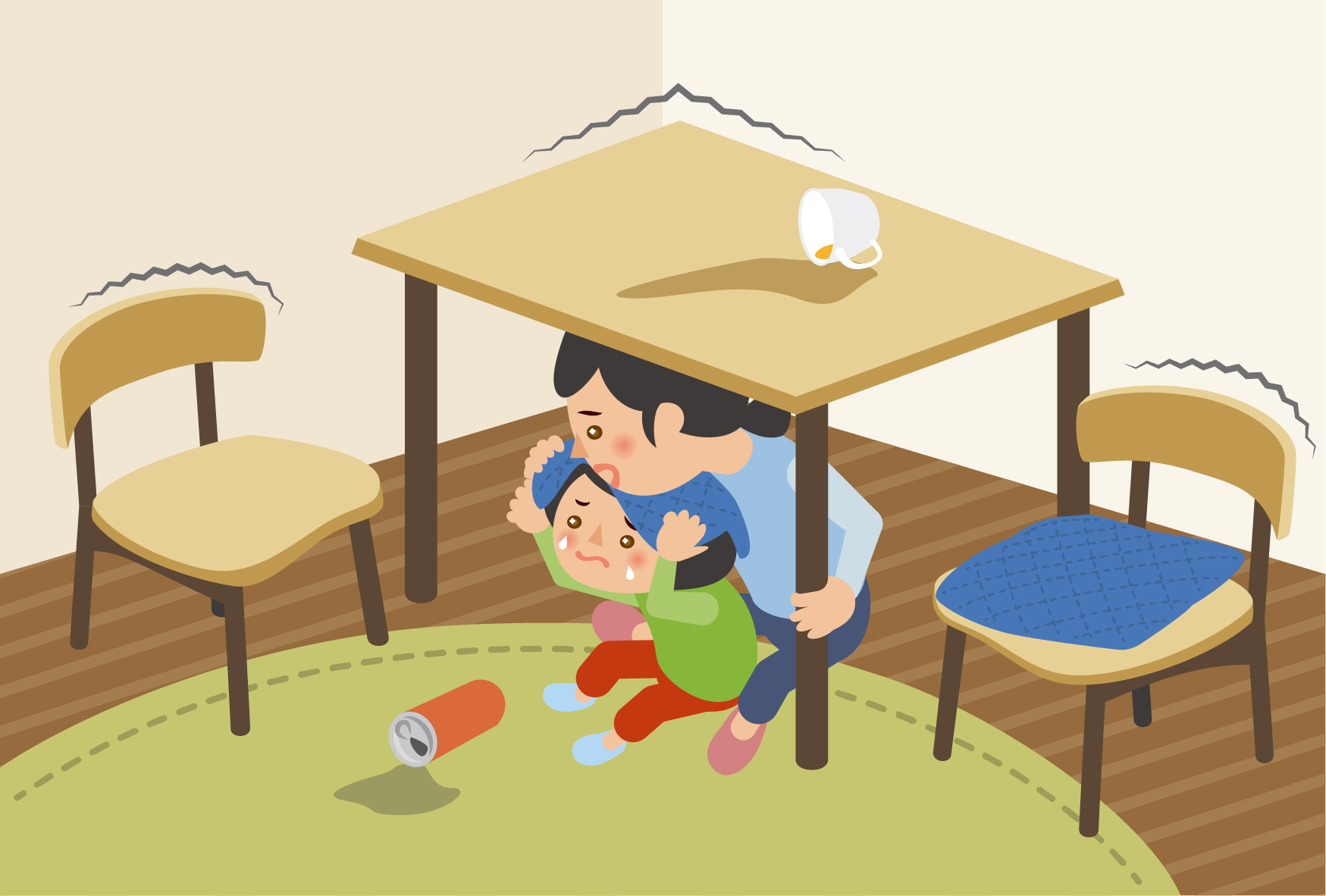
When the shaking stops, secure an escape route by opening doors and windows.
- If you are using an open flame
Move away from the flame.
In the case of a major earthquake, the gas supply will stop automatically.
Extinguish the flame after the shaking has stopped.
If something catches fire, wait until after the shaking has stopped to extinguish it. - If you are sleeping
Use a pillow or blanket to protect your head and body.
If you can fit under your bed, take shelter there.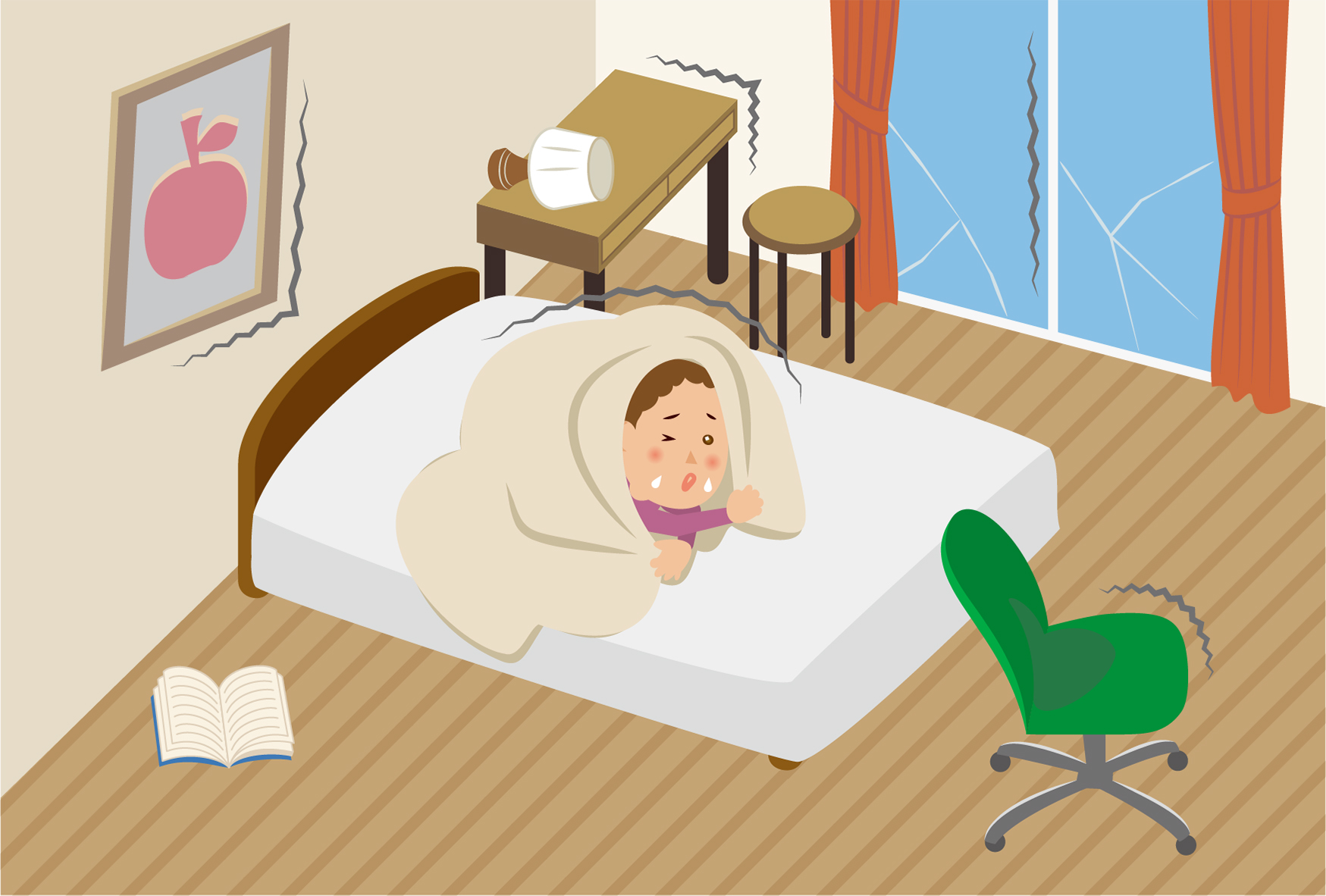
- If you are in the bathroom
To prevent yourself from being trapped, open the door as soon as possible.
If you are outdoors
Use a bag or coat etc. to protect your head and crouch low while waiting for the shaking to stop.
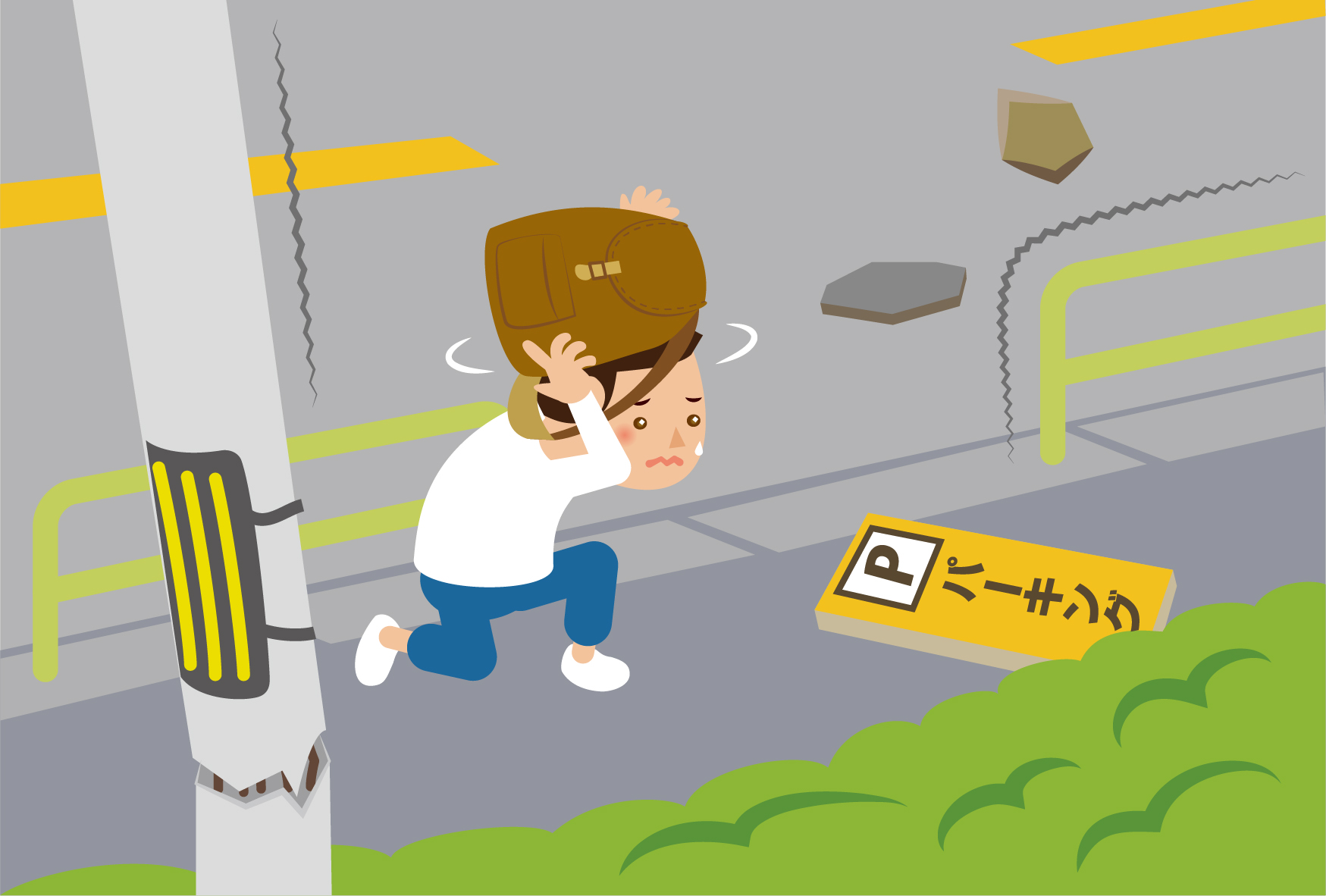
- If you are walking in the street
Move away from walls and glass windows.
If you are in an area with many high rise buildings or very old buildings, move to an open area such as a park. - If you are in a train station
Stay far from the edge of the platforms so you don’t fall onto the tracks.
When the shaking stops, follow the instructions of station staff. - If you are in a supermarket or convenience store
Products may fall from shelves.
Protect your head with a bag or a shopping basket, and crouch low until the shaking stops.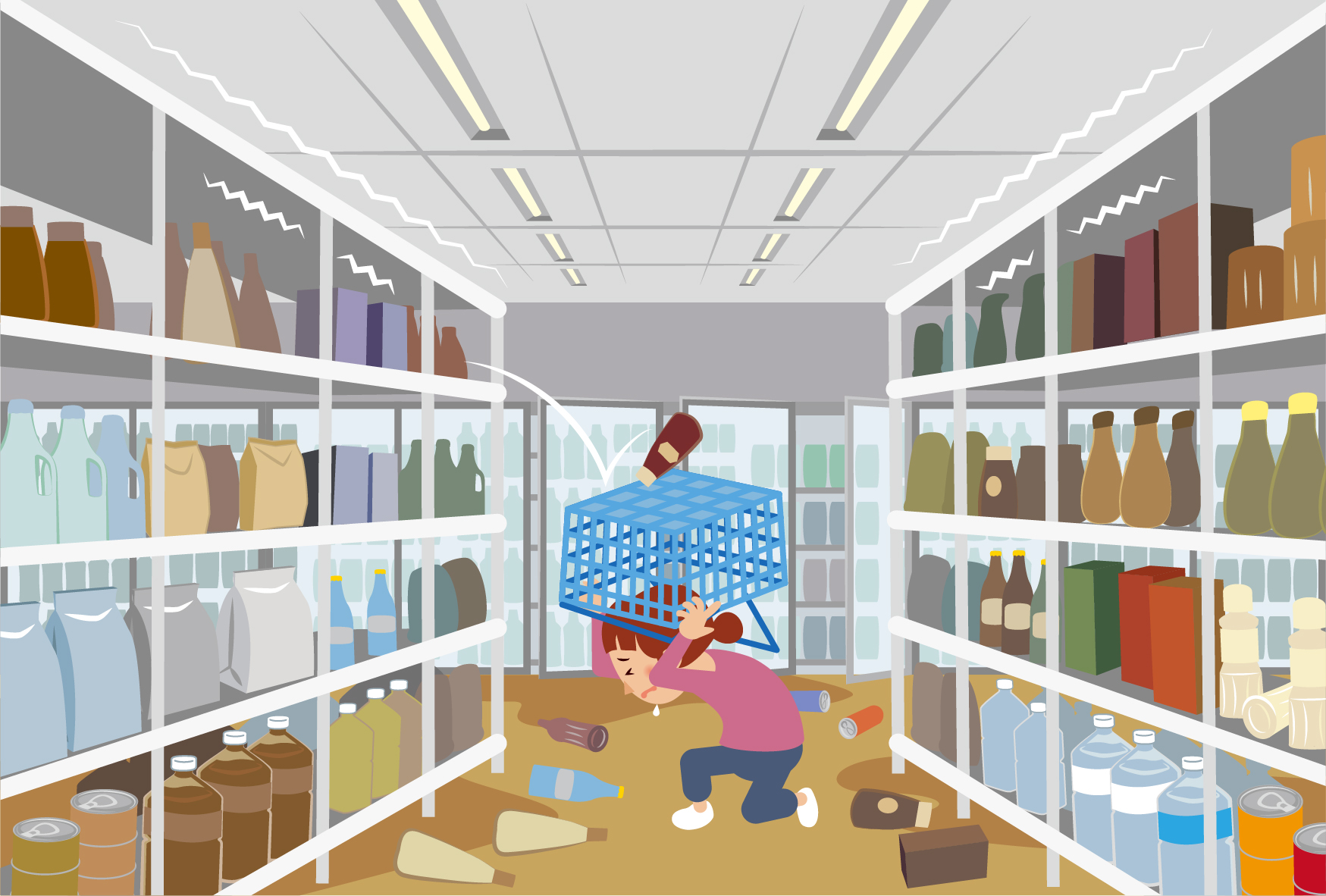
- If you are underground
It is very dangerous when a group of panicked people converge on an exit.
Be extra careful if there are power outages when underground.
Crouch low and wait for the shaking to stop beside a wall or pillar.
When the shaking has stopped, keep one hand touching a wall so you don't lose your way as you make your way outside.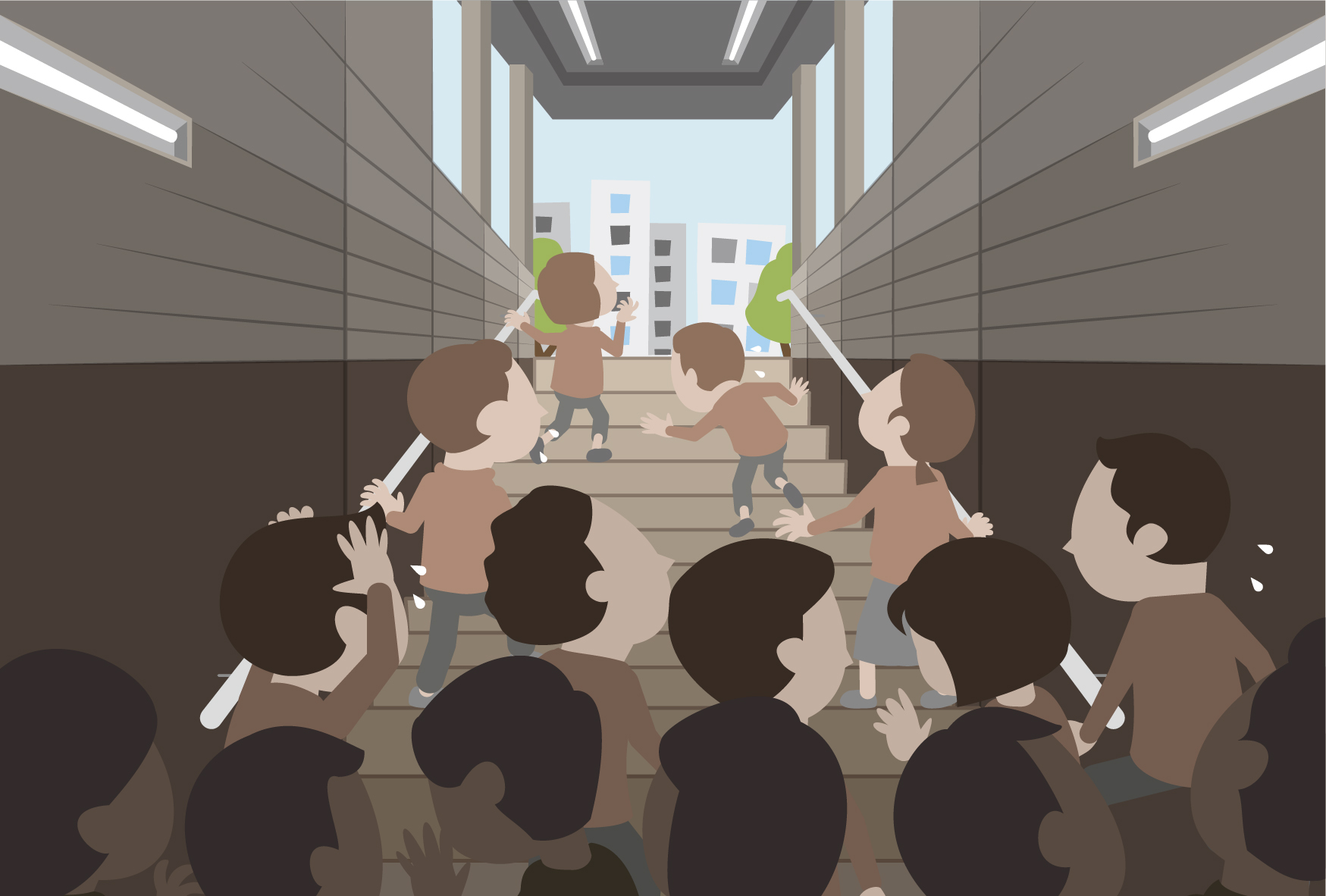
- If you are in an elevator
During a major earthquake, it is common for elevators to stop automatically.
Press the buttons for every floor, and get out wherever it stops first.
If the door will not open, use the interphone to call for help and follow the instructions.
- If you are in a car
Turn on the hazard lights and gradually reduce your speed.
Pull over to the left side of the road and wait for the shaking to stop.
If you leave your car behind to evacuate, leave it in a state where it can be moved so that emergency vehicles can pass. Leave the doors unlocked with the keys inside, and leave a note with your contact details.
Take any valuables and vehicle documents with you.
/li>
After a Major Earthquake
What occurs after a major earthquake
- Even after the shaking stops, it is common for further earthquakes to follow. These are known as Yoshin(aftershocks) in Japanese.
- Tsunamis may strike coastal areas.
- Major fires may break out.
- Train and bus services may stop.
- Major roads may be closed to normal cars to allow access for emergency vehicles.
- Gas, electricity and water services may be suspended.
- It may become difficult to connect to the internet or reach people by phone.
What you should not do, even after shaking subsides
- Do not light flames. If there is a gas leak, it may cause a fire.
- Do not touch electrical switches. They may explode.
- Do not board elevators. You may become trapped.
- Do not use a car to evacuate. If everyone uses their car, emergency vehicles will be unable to pass.
- Hold off on making any non-emergency calls. If everyone uses the phone, the lines will become jammed.
What to do after shaking subsides
- Confirm whether your current location is safe or not.
Ensure the place you are in is not at risk from a tsunami or building collapse, and that no fires have started. If the location is not safe, evacuate swiftly.
- Confirm the safety of your family. Decide a communication method in advance.
For details, please see the following page: Preparing for Disasters (8 languages)
- If you cannot stay in your home, evacuate in a calm manner.
For details, see the following page: About Evacuation Center (8 languages)
- If you are away from home, remain in a safe location.
Check the current situation – whether trains are running, if streets are passable, whether any fires have broken out near your home, etc.
Column:Cooperating with Others
When evacuating, reach out to the people around you to make sure they are safe.
Make sure no one is trapped under fallen objects, injured, or unable to make it outside.
When helping, approach others to assist you.
If you are unsure about what to do, ask those around you.
During a disaster, it is important that everyone works together.
To help with this, it is good to be in the habit of greeting your neighbors when you see them.
